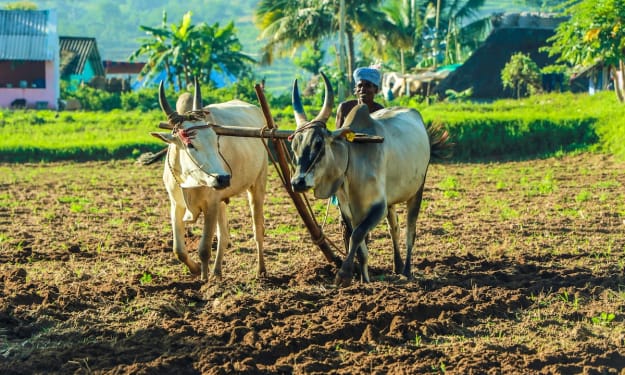
Children are the future of our society, and their well-being and development are crucial for a healthy and prosperous future. It is essential to provide them with a safe and nurturing environment where they can grow, learn, and thrive. In this article, we will explore various aspects of children's lives and the factors that influence their development.
Health and Nutrition
The physical health of children is of utmost importance. Proper nutrition, exercise, and rest are essential for their growth and development. Malnutrition and inadequate healthcare can lead to stunted growth, weakened immunity, and other health problems. According to the World Health Organization, around 45% of child deaths are linked to malnutrition.
Parents and caregivers must ensure that children receive a balanced and nutritious diet, including fruits, vegetables, whole grains, and lean proteins. Regular physical activity and adequate sleep are also important for their physical and mental well-being.
Education
Education is a fundamental right of every child. It is not only essential for their personal growth and development but also for the progress of society. Quality education empowers children and helps them become responsible citizens who can contribute to their community.
However, millions of children around the world are still denied the opportunity to go to school due to poverty, discrimination, and other factors. The lack of education not only affects their future prospects but also perpetuates the cycle of poverty and inequality.
It is the responsibility of governments and society as a whole to ensure that every child has access to quality education. This includes not only providing schools and teachers but also addressing issues such as gender inequality, cultural biases, and social barriers.
Safety and Protection
Children have the right to live in a safe and secure environment, free from abuse, neglect, and exploitation. Unfortunately, millions of children around the world are exposed to various forms of violence and exploitation, including child labor, trafficking, and sexual abuse.
Parents and caregivers must ensure that children are protected from harm and have access to appropriate services and support in case of abuse or neglect. Governments and organizations must also take action to prevent and respond to these issues and ensure that perpetrators are held accountable.
Play and Recreation
Play and recreation are essential for children's social, emotional, and cognitive development. Through play, children learn important life skills, such as problem-solving, creativity, and teamwork. It also helps them develop social and emotional competence, including self-regulation, empathy, and communication.
However, many children around the world are denied the opportunity to play and engage in recreational activities due to poverty, violence, or cultural norms. It is important to ensure that every child has access to safe and engaging play environments and that they are encouraged to explore their interests and passions.
Family and Community Support
Family and community support play a critical role in children's development. A supportive family environment, including positive parenting practices and strong relationships, can help children develop resilience and coping skills, which are essential for their well-being.
Communities also play an important role in children's lives, providing social connections, resources, and opportunities for learning and growth. It is essential to ensure that communities are inclusive, safe, and supportive, and that children have access to essential services, such as healthcare, education, and recreation.
Conclusion
Children's lives are shaped by a complex web of factors, including health, education, safety, play, and community support. Ensuring their well-being and development requires a collaborative effort from parents, caregivers, governments, and society as a whole.
By prioritizing children's needs and rights, we can create a better world for them to grow, learn, and thrive. Let us work together to provide children with the tools and opportunities they need to become responsible and productive members of society.
In addition to the factors mentioned above, it is also important to address the unique needs and challenges faced by different groups of children, such as those living in poverty, with disabilities, or in conflict-affected areas. These children may require additional support and resources to ensure that their rights and well-being are protected.
Poverty is one of the most significant challenges facing children worldwide. Children living in poverty are more likely to suffer from malnutrition, lack of access to education and healthcare, and exposure to violence and exploitation. Governments and organizations must take steps to address poverty and inequality, such as implementing social protection programs, promoting equitable economic growth, and ensuring that children have access to essential services and opportunities.
Children with disabilities also face unique challenges, including discrimination, exclusion, and lack of access to services and support. It is essential to ensure that these children have equal access to education, healthcare, and other services, and that their rights and needs are recognized and respected.
Children in conflict-affected areas are among the most vulnerable and at-risk populations. They may experience displacement, loss of family members, exposure to violence, and disruption of their education and social networks. Governments and organizations must prioritize the protection and well-being of these children, ensuring that they have access to safe and supportive environments, education, and other essential services.
In conclusion, ensuring the well-being and development of children is a complex and multifaceted task that requires the collective effort of parents, caregivers, governments, and society as a whole. By prioritizing children's needs and rights and addressing the unique challenges faced by different groups of children, we can create a world where all children have the opportunity to grow, learn, and thrive. Let us work together to ensure that every child has a bright and promising future.





Comments
There are no comments for this story
Be the first to respond and start the conversation.